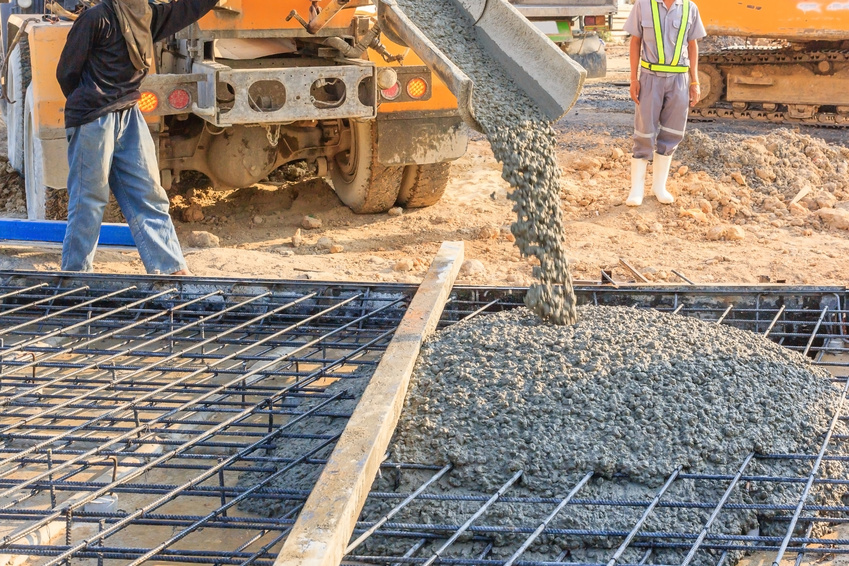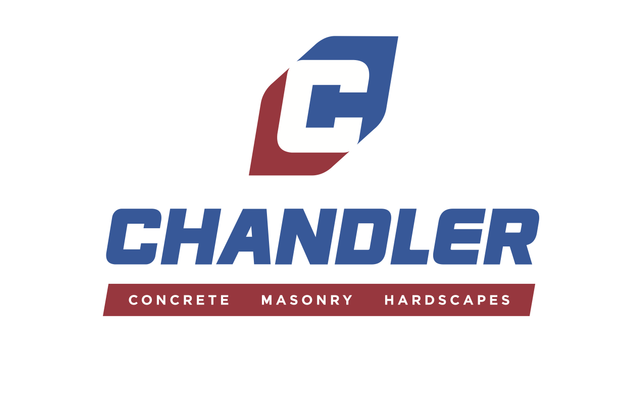The Advantages of Using Concrete Services for Resilient Frameworks
Concrete services use a variety of benefits for constructing sturdy structures. This product is renowned for its extraordinary stamina and durability. Its resistance to ecological aspects makes it a practical selection for different environments. Additionally, concrete is typically more economical in the lengthy run. As builders and architects progressively discover cutting-edge applications, the capacity of concrete in layout becomes a lot more interesting. The conversation of these advantages discloses compelling insights right into modern building methods.

Outstanding Strength and Toughness
Concrete is renowned for its exceptional stamina and durability, making it a preferred material in construction. Concrete Companies Near Me. Its capacity to stand up to heavy lots and resist deformation under stress is exceptional, which is why it is typically utilized for foundational components, sustaining frameworks, and skyscrapers. The make-up of concrete, that includes cement, water, and aggregates, permits it to achieve high compressive stamina, typically surpassing that of typical building materials like timber or steel. This stamina ensures structural honesty and long life, thereby minimizing upkeep expenses in time. Additionally, concrete's resilience is evident in its capability to withstand various stresses without catching tear and use, making it suitable for varied applications, from bridges to domestic homes. Generally, the robust attributes of concrete add to its credibility as a reliable selection for creating enduring frameworks that stand the test of time
Resistance to Environmental Factors
Several building and construction products are susceptible to environmental damage, concrete shows impressive resistance to different elements such as moisture, temperature level variations, and chemical exposure. Its inherent residential properties make it specifically appropriate for varied applications, from property buildings to huge facilities projects. Concrete's low permeability restrictions water absorption, reducing the threat of damages from freeze-thaw cycles and preventing mold and mildew growth. Additionally, it preserves structural integrity when revealed to severe temperature levels, making it excellent for regions with extreme environments. Concrete also stands resistant against chemical strikes, consisting of sulfates and acids, which can deteriorate various other products. This resistance is better improved by the use of specialized ingredients and treatments during the mixing process. In general, concrete's longevity when faced with environmental challenges guarantees longevity and dependability, making it a favored selection for builders and engineers aiming to build sustaining frameworks.
Cost-Effectiveness Over Time
Cost-effectiveness in concrete solutions manifests as a long-lasting financial investment that noticeably profits frameworks. This method not just lessens upkeep expenditures but likewise improves energy performance, bring about significant savings over time. Understanding these aspects is vital for evaluating the total worth of durable concrete buildings.
Long-Term Financial Investment Advantages
Purchasing sturdy structures yields substantial long-lasting benefits that extend beyond first expenses. Concrete solutions, understood for their effectiveness, add to a framework's durability, inevitably lowering the complete cost of possession. By making use of high-grade materials and skilled craftsmanship, proprietors can expect fewer repair services and replacements gradually. This reliability translates into a stable property worth, making concrete building and constructions a wise financial choice in the realty market. Additionally, structures built with concrete are often more energy-efficient, more boosting their cost-effectiveness. As an outcome, the initial financial investment in concrete services can result in considerable savings and better returns for many years, verifying the value of selecting durable alternatives for resilient building tasks.
Reduced Upkeep Expenses
The longevity of concrete structures not only improves property value however also substantially lowers maintenance costs over time. Unlike materials that weaken promptly, concrete demonstrates impressive durability against various ecological variables, such as wetness, temperature level fluctuations, and insects. This inherent resilience converts to less repair work and replacements, thus lessening long-term expenses. Additionally, the low absorption price of concrete limits problems associated with mold and mildew and mildew, which can require pricey remediation initiatives. Normal upkeep is often reduced to easy cleansing as opposed to extensive repair services, further adding to cost-effectiveness. Because of this, residential or commercial property proprietors investing in concrete services can expect a significant decrease in maintenance spending plans, making concrete a financially sound option for sturdy structures.
Energy Effectiveness Financial Savings
As energy effectiveness comes to be significantly essential in building, concrete structures attract attention for their capability to improve lasting cost savings on utility expenses. The thermal mass of concrete enables buildings to preserve stable interior temperatures, lessening the requirement for home heating and cooling down systems. This building reduces energy intake and converts to decrease power expenses with time. In addition, concrete's durability adds to less repair work and replacements, additionally enhancing cost-effectiveness. Modern-day concrete technologies, such as shielded concrete types and energy-efficient mixes, improve insulation and power performance, leading to significant cost savings. Spending in concrete solutions not only benefits the atmosphere through lowered power usage but also provides substantial financial advantages for residential property owners in the lengthy run.
Flexibility in Layout and Application
Concrete's adaptability in layout and application enables a wide variety of adjustable aesthetic options, making it appropriate for different architectural styles (Concrete Contractors Near Me). Its capability to adjust to diverse structural applications enhances its performance in both residential and business tasks. This flexibility positions concrete as a favored material in modern building
Adjustable Aesthetic Choices

Diverse Structural Applications
Exploring the diverse structural applications of concrete exposes its exceptional convenience in layout and performance. Concrete is made use of in various forms, consisting of foundations, walls, pavements, and attractive elements, enabling it to adjust to various building styles. Its integral strength and sturdiness make it appropriate for skyscrapers, bridges, and facilities tasks. Additionally, concrete can be molded right into complex forms, accommodating cutting-edge designs while maintaining architectural stability. This versatility also includes residential applications, such as patio areas, driveways, and retaining walls. Furthermore, advancements in technology have actually led to the advancement of specialized concrete mixtures, improving performance in specific atmospheres. This extensive applicability emphasizes concrete's necessary function in contemporary building, meeting both functional and visual demands properly.
Reduced Maintenance Demands
Many homeowner value the reduced maintenance demands related to concrete frameworks. Unlike materials such as wood or metal, concrete is normally resistant to bugs, rot, and rust. This durability significantly reduces the regularity and expense of repair work gradually. Splits and surface area wear can be quickly addressed with marginal initiative, typically needing only routine sealing or resurfacing.Additionally, concrete structures do not call for regular paint see here or staining, more adding to their reduced maintenance. This particular is particularly beneficial for commercial buildings, where maintenance prices can swiftly accumulate.Furthermore, concrete is less at risk to weather-related damage, making certain that structures continue to be intact no matter environmental conditions. As an outcome, building owners can take pleasure in the lasting benefits of concrete, including decreased labor and upkeep expenses, allowing them to allocate sources to various other necessary learn the facts here now locations of their buildings. Ultimately, the reduced maintenance needs of concrete make it an attractive option for developing durable frameworks.
Eco-Friendly Structure Material
As the demand for lasting building techniques expands, concrete arises as a green structure product that offers many environmental benefits. Its manufacturing can integrate recycled materials, such as industrial spin-offs and waste aggregates, which decreases the requirement for virgin resources and lessens landfill waste. In addition, concrete has the ability to regulate temperature, therefore improving power effectiveness in buildings. This thermal mass effect can bring about lower energy intake for home heating and air conditioning, additional decreasing a framework's carbon footprint.Moreover, concrete is sturdy and lasting, which suggests frameworks require less repair work and remodellings over time, bring about much less source use in general. Advances in modern technology have actually likewise caused the advancement of eco-friendly and low-carbon concrete formulations that minimize greenhouse gas emissions throughout production. By prioritizing concrete in building and construction jobs, contractors can contribute to a much more sustainable future while ensuring the long life and strength of frameworks.
Enhanced Residential Property Value and Charm
A sound concrete structure notably improves residential property value and appeal, often making it extra attractive to prospective customers or renters. Concrete's toughness and low maintenance needs add substantially to lasting investment returns. Characteristics including premium concrete building and constructions often tend to attract greater deals as a result of their perceived security and long life. Additionally, visually pleasing concrete designs, such as stamped or tinted coatings, can raise visual appeal, producing a favorable first impression.Moreover, concrete structures typically satisfy contemporary structure requirements, which can be a selling point for ecologically mindful customers. The power performance linked with well-insulated concrete likewise attract purchasers aiming to lower utility expenses. Generally, spending in concrete solutions not only strengthens the architectural stability of a property but likewise enhances its bankability, resulting in boosted residential property worth and an one-upmanship in visite site the actual estate market.
Often Asked Concerns
For how long Does It Take to Cure Concrete Effectively?
The curing process of concrete normally takes regarding 28 days to accomplish optimal stamina, although initial setup happens within hours. Variables like temperature and humidity can influence the curing duration and effectiveness substantially.
What Sorts Of Concrete Services Are Offered?
Various kinds of concrete services exist, consisting of putting, creating, ending up, resurfacing, and ornamental concrete. Concrete Contractors Near Me. Firms might additionally offer repair service, reconstruction, and installment of concrete frameworks, dealing with both property and commercial requirements
Can Concrete Be Recycled After Its Use?
Concrete can undoubtedly be reused after its usage. When processed, it can be repurposed for brand-new building projects, minimizing waste and advertising sustainability within the building and construction market while maintaining architectural integrity in new applications.
What Are the Best Practices for Pouring Concrete?
When putting concrete, ideal practices include correct site prep work, guaranteeing excellent temperature conditions, making use of suitable mixing ratios, maintaining constant putting techniques, and allowing adequate treating time to enhance stamina and toughness of the ended up framework.
Are There Any Alternatives to Typical Concrete?
